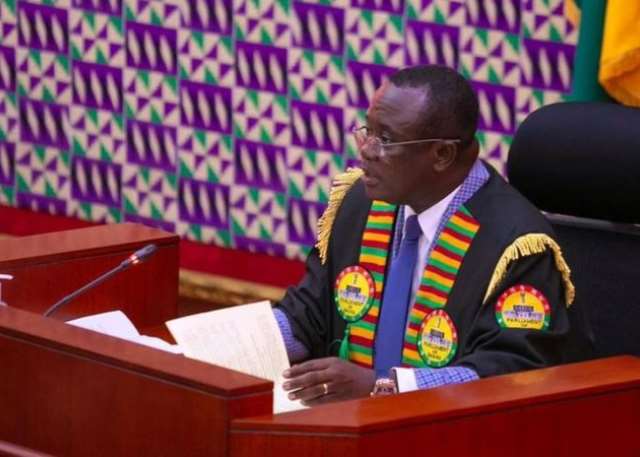Joseph Osei-Owusu Defends Chief of Staff’s Post-Vetting Financial Support, Insists It Was Not Bribery

Former First Deputy Speaker of Parliament, Joseph Osei-Owusu, has addressed the controversy surrounding payments made to members of the Appointments Committee after vetting nominees, asserting that while members have received money from the Chief of Staff, it is not a case of bribery.
In a recent interview on Joy News’ PM Express, Osei-Owusu acknowledged that it was a common practice for members of the Appointments Committee to receive money at the conclusion of their work. He explained that the payments were intended to assist with the facilitation of the work of the committee, stressing that it had no bearing on the decisions made during the vetting process.
“Yes, indeed, I told him (Manasseh Azure) that when I joined the Appointments Committee, most of the time, at the close of our work, the Chief of Staff would bring money to the members of the committee. It’s like facilitating our work,” Osei-Owusu explained. “I wonder how anybody could link that to bribery?” he added. He expressed his frustration with what he saw as the common tendency in Ghana to make unfounded allegations, without offering credible evidence to back them up.
Osei-Owusu also referred to a past controversy in 2017, where he was accused of being involved in bribery during the vetting of a ministerial nominee. He reflected on the allegations made by Mahama Ayariga and other Members of Parliament (MPs) at the time, describing how they had accused him of accepting bribes. He recalled the steps he took to protect his reputation, which included initiating legal action. “It was extremely important for me that my reputation was vindicated,” he emphasized, stating that he felt confident that the allegations were baseless.
Osei-Owusu went on to explain how he responded to claims made in journalist Manasseh Azure’s book, which suggested that money was given to MPs after the vetting process. He maintained that these payments were not problematic, and in no way influenced the vetting process itself. He argued that the funds were simply a means of facilitating the work of the committee and had no impact on the decision-making or outcome of the vetting.
“This is after the work. How can that bring an advantage to anybody? What gives a disadvantage to anybody? So it’s a pity how we can stretch facts,” he said, defending the practice and refuting the notion that it amounted to influence peddling. He argued that payments made after the work had concluded could not influence decisions or provide any unfair advantage.
However, Osei-Owusu’s stance was strongly contested by former Auditor-General Daniel Yaw Domelevo, who was also a guest on the program. Domelevo described the practice as problematic and expressed concern that such payments could undermine the integrity of Parliament. He questioned why Parliament, a separate institution, would be receiving money from the Chief of Staff, arguing that this could potentially create conflicts of interest. “Does it mean Parliament falls under the budget of the Chief of Staff? Are they not allocated their own budget?” Domelevo questioned.
Domelevo further emphasized that the payments could exert undue influence over the work of the MPs, suggesting that the knowledge of receiving financial compensation after performing their duties could impact the objectivity of their decisions. He called for an immediate cessation of the practice, stating, “If it happened, I think it has to stop. If we know that after doing this work, we will be remunerated, it influences the work that we are doing. So there is influence peddling there.”
The debate has sparked a wider conversation about the independence of Parliament and whether financial incentives—no matter the timing—could compromise the integrity of parliamentary work, especially in critical processes such as vetting nominees. While Osei-Owusu maintains that these post-vetting payments are simply a facilitation of work and not a form of bribery, critics like Domelevo argue that such practices could erode public trust in the legislative process and lead to potential conflicts of interest.
As the conversation continues, it raises questions about the transparency and ethics of parliamentary procedures, particularly in a country where allegations of corruption are frequently a source of public concern.







